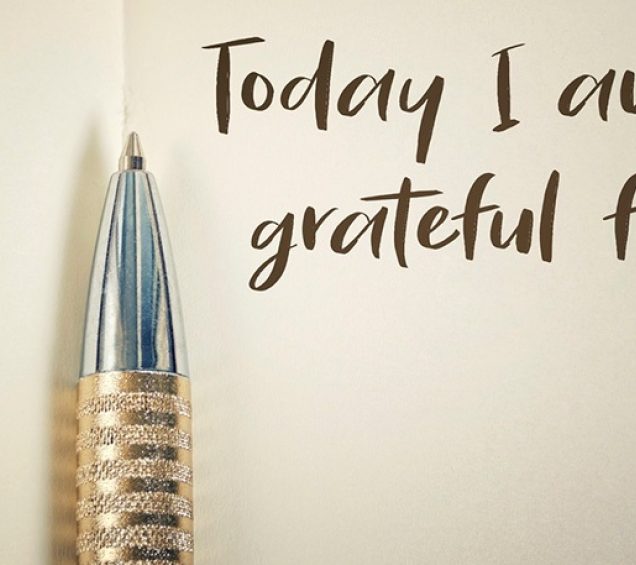Cultivating the Healing Power of Gratitude to Retrain Your Brain
The holidays are a time of year when many of us struggle because there is a strong encouragement for exuberance that doesn’t align with our reality. If we’re not feeling exuberant, it can be especially difficult. Instead of being weighed down by the external trappings of the holiday, practicing gratitude, not just at Thanksgiving, can offer a renewed sense of hope and introduce an element of perspective that can be healing.
Gratitude can be a vital tool, whether you’re in recovery from a substance use disorder or struggling with other personal challenges such as relationship problems, economic hardship, mental health issues, illness and grief. The practice of gratitude can help retrain your brain to help reorient it out of despair. Gratitude helps us realize that our challenges are not the only things in our lives at any given moment and that, even in the most extreme situations, there are still things for which to be grateful. I like to think of gratitude as a muscle you flex that becomes stronger over time and can help redirect you out of despair and into the bigger picture of life’s possibilities.
Whether you’re in recovery or looking for more ways to find peace during the holidays, these practices can build your gratitude awareness:
Keep a Gratitude Journal: By writing a daily gratitude list or journaling, we can retrain the neural pathway in our brains to see the positives in life rather than the negatives. Instilling it as a daily habit keeps the technique top of mind, so when adversity strikes or difficult situations arise, we have the resilience and “gratitude repertoire” to keep things in perspective and heal more quickly. Sarah Ban Breathnach’s best-selling book, Simple Abundance, helped to bring this recovery tool into the mainstream and can be a resource for those beginning their gratitude journey.
Celebrate Small Victories: One of the wonderful elements of recovery is the emphasis on understanding the importance of celebrating small victories. If it’s an accomplishment for a person battling depression to do a load of laundry, then celebrate that load of laundry. If you pick up a pen to write an entry in a gratitude journal but find yourself at a loss for what to write, celebrate picking up the pen. Part of the secret to serenity during this time of high expectations is to set reasonable goals for ourselves. What comes easily to some doesn’t always come easily to others. It is important to be grateful for the small things as well as the big.
Notice the Gratitude of Others: The practice of gratitude goes beyond what we are thankful for. In fact, it extends to the profound experience of observing other people being grateful, especially during a struggle. That can be deeply powerful as well as motivational.
Pay It Forward: Gratitude can be contagious. Calling someone, sending a note, volunteering, and sharing inspirational posts are opportunities to infuse your gratitude into the world around you.
One of my deep beliefs is that every person is of infinite worth and value. I encourage you to own this life force, identify one positive step towards gratitude you can take today, and then make it happen. It may be as simple as celebrating being alive – and that’s a beautiful place to start.
Take the next step:
Start with an online form
-
Caron in Pennsylvania
1-800-854-6023 -
Caron in Florida
1-800-221-6500 -
Breakthrough at Caron
1-800-213-7834




